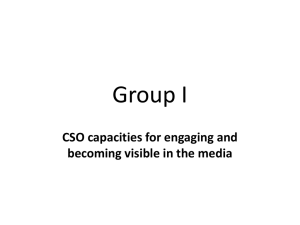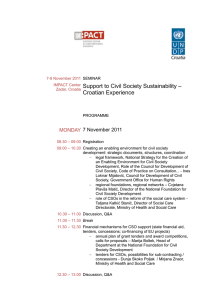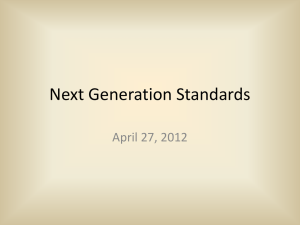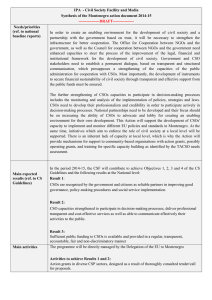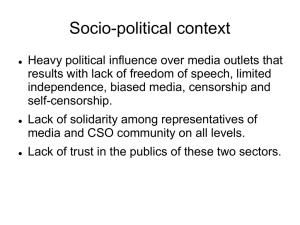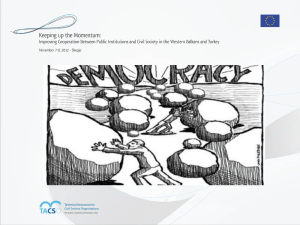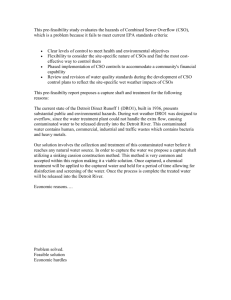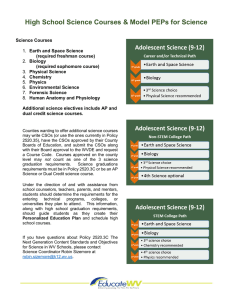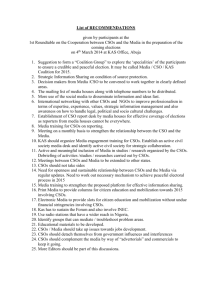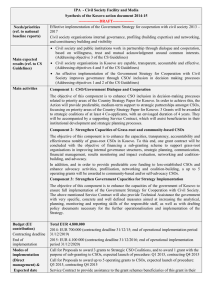Roundtable 5: Donor and Government Enabling Environment
advertisement
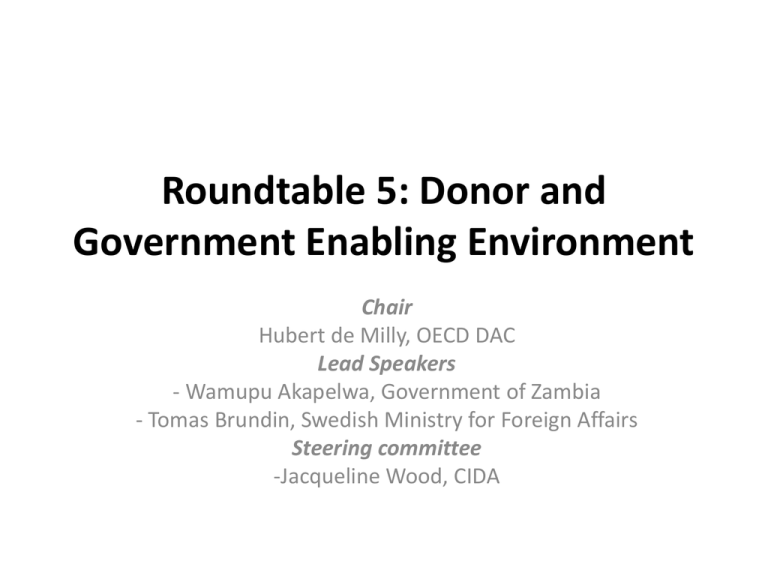
Roundtable 5: Donor and Government Enabling Environment Chair Hubert de Milly, OECD DAC Lead Speakers - Wamupu Akapelwa, Government of Zambia - Tomas Brundin, Swedish Ministry for Foreign Affairs Steering committee -Jacqueline Wood, CIDA Proposed commitments by partner governments • Reforming the existing legislative framework (or introduce one if necessary) to make it more enhancing for an independent civil society (recognizing role, voice, activity…, facilitating registration, right to receive funds…) • Establish mechanisms (places, arenas) for ongoing multistakeholder dialogue to deal with specific development issues and policies, and resolve problems • Government contribution for CSOs in order to enable better performance (Reservation: with contribution goes control, and we don’t want to controls civil society). Proposed commitments by donors • • • • Draft a common overarching goal for donors vis à vis civil society,: – Tentative goal: Strengthen a vibrant, democratic and diverse civil society in partner countries. – Efforts to reach it : policy dialogue with CS and partner governments, communication Balance capacity building efforts between governments and civil society. Apply “good donorship” in support of civil society: – Core support – Long term commitment, build on what exists – Common funding modalities – Flexibility/responsiveness – Appropriate contracting and procedures, single reporting Encourage Northern CSOs to be responsive to local demands and relate to partner countries development strategies. Other points mentioned: • Focus on south-south learning. • Allocate resources for impact evaluations (especially participatory/rigorous). • Direct access for CSOs to donors vs intermediary bodies (cf. Sierra Leone case study) Proposed commitments by Southern CSOs: • Operate within existing regulatory framework and establish CSO code of conduct for increased accountability and transparency. • Have constant contact with local constituency through information sharing and consultation. • Develop self monitoring and evaluation mechanisms. Proposed commitments by Northern CSOs: • Downward accountability to CSO partners & beneficiaries. • Sustainable and more equitable partnerships with SCSOs • Advocacy role in establishing spaces for inclusive policy dialogue (including in the North). Making but not taking all the space. • Legitimacy through either/or: – – – International code of conduct learning from Red Cross Code, HAP, etc. Promote public understanding of CSO role Accreditation process ? • Harmonise to reduce duplication of effort in service delivery, but not on human rights, social change or advocacy issues, as there is value in diversity of approach. Multi stake holders proposed commitments: • Ease access to information for CSOs (but CSOs are also sources of information, especially qualitative information, innovation, research…) • Acknowledge the political but non-partisan dimension of civil society development efforts. CSOs as change agents. • Acknowledge the legitimacy of CSO own specific goals, beyond governments and donors priorities (but not in contradiction with them). • All stakeholders should commit to abide by a common law : HUMILITY.

